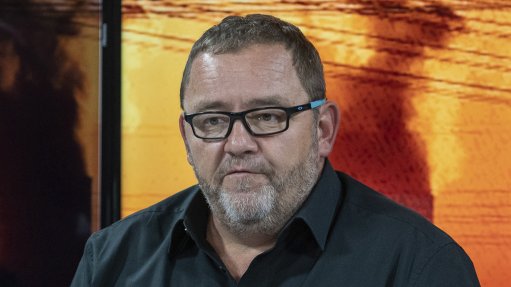
AfriForum CEO Kallie Kriel
Civil rights organisation AfriForum has launched the first phase of the organisation’s three-phase plan – Project AfriEnergy – to help solve the prevailing electricity crisis in South Africa.
The first phase focuses on short-term solutions, to which AfriForum released a guide to help households investigate and ultimately install solar photovoltaic (PV) systems and lessen their reliance on electricity provided by Eskom.
AfriForum’s efforts to assist in the crisis include ongoing court actions against the National Energy Regulator of South Africa (Nersa) which, despite Stage 6 loadshedding earlier in January, announced an electricity tariff increase of 18.65% for Eskom’s customer from April 1.
AfriForum CEO Kallie Kriel says Project AfriEnergy is a broad electricity plan that flows from the realisation that the State and Eskom “are no longer able to supply power to the country”.
“We can no longer watch as the country is destroyed due to the power crisis. AfriForum will play a role in bringing investments and expertise together to look at a multitude of solutions and models,” he says.
Kriel adds that the decentralisation of electricity is of critical importance and that AfriForum will work together with all role-players to achieve these goals.
AfriForum community sustainability head Johan Kruger says Phase 2 of Project AfriEnergy focusses on helping towns, cities and communities put pressure on local government to free them from electricity sold by municipalities.
“The model that the private company Rural Free State, in the Mafube district in the Free State, uses with success will be further researched. This company successfully took over the management of electricity in four towns ten years ago,” he says.
Phase 3, the long-term phase of the plan, involves AfriForum potentially commissioning a nuclear power station. However, the organisation cautions that comprehensive research is still needed before such an endeavour can be undertaken.
“With Phase 1, it is essential for AfriForum that consumers understand the basic principles of what is available in the market. They must be able to work in a responsible manner to find cost-effective solutions to their power problems,” says Kruger.
Different consumers in the residential, commercial and industrial sectors, all have different needs, he explains.
“With the AfriForum [solar PV guide], we focus on useful information about what to look out for in the market and how to look for efficient service providers,” says Kruger.
AfriForum local government affairs manager Morné Mostert says AfriForum will take legal action to review Nersa’s decision for a tariff increase. The first step will be to request reasons to justify this decision.
“We also remain in discussion with our legal team regarding litigation aimed at decentralising the energy sector of South Africa,” he says.